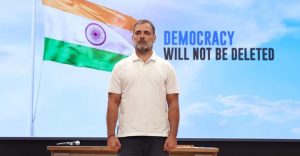
When former U.S. President Donald Trump unexpectedly offered to mediate between India and Pakistan over the long-standing Kashmir dispute, it sent shockwaves through diplomatic channels in New Delhi. Trump’s claim that Prime Minister Narendra Modi had requested such intervention placed India in an awkward diplomatic position—forcing an immediate and sharp denial.
Tensions in the region had already reached a boiling point following a terrorist attack in Jammu and Kashmir that claimed 27 lives, including foreign tourists. India blamed the attack on Pakistan-backed groups, triggering a brief military exchange along the Line of Control (LoC). Global powers, including the United States, scrambled to de-escalate the situation. A ceasefire was achieved with U.S. diplomatic help, but Trump’s public claim shortly afterward complicated matters.
During a joint press briefing with Pakistan’s Prime Minister Imran Khan, Trump stated, “I was asked by Prime Minister Modi if I would like to be a mediator or arbitrator. I was surprised, but I’m willing to help if they want me to.” The statement left India’s foreign policy establishment scrambling to contain the fallout.
India’s official position is clear and longstanding: Kashmir is a bilateral issue to be resolved between India and Pakistan without third-party involvement. The 1972 Simla Agreement, which both countries signed after the Indo-Pak war, enshrines this principle. Trump’s remarks, therefore, risked undermining not only India’s sovereignty but also the diplomatic framework that has governed the issue for decades.
India’s Ministry of External Affairs immediately denied that Modi had made such a request. “No such request was made by the Prime Minister to the U.S. President,” the statement read. This was followed by further clarifications from India’s Ambassador to the United States, Harsh Vardhan Shringla, who emphasized that the U.S. offer was off the table as India had not accepted it.
The controversy sparked a political firestorm in India. Opposition leaders, while critical of Modi on many fronts, stood united in rejecting foreign mediation in Kashmir. The Indian media also reacted sharply, accusing Trump of either misunderstanding or misrepresenting India’s stance.
Imran Khan, meanwhile, expressed support for the idea. “The people of Kashmir have suffered for too long. If the U.S. can mediate, it would be a historic contribution to peace,” Khan said. Pakistan has often sought international involvement in Kashmir, believing that bilateral talks have consistently failed to make progress.
The episode raised important questions about the role of major powers in South Asia’s most dangerous conflict. While Trump’s comments may have been improvised, they highlighted the sensitivities surrounding Kashmir. The issue is not only about territorial claims but about national identity, history, and security for both India and Pakistan.
Former diplomats were quick to interpret Trump’s remarks through the lens of his unconventional style. “This is Trump being Trump,” said Shivshankar Menon, former Indian National Security Advisor. “He often says things off-the-cuff, but we must ensure our core interests are not compromised in the process.”
Strategically, India must now recalibrate its diplomatic engagement with the U.S. While the two countries have deepened defense and trade ties over the years, Washington’s ambiguous stance on Kashmir could cast a temporary shadow on the relationship.
In the end, Trump’s mediation offer, whether a miscommunication or genuine proposal, placed India in a diplomatically tight spot. It had to swiftly reaffirm its red lines without offending a key strategic partner. The episode also reminded the world that despite moments of calm, the Kashmir issue remains deeply volatile—and a potential flashpoint for global concern.






